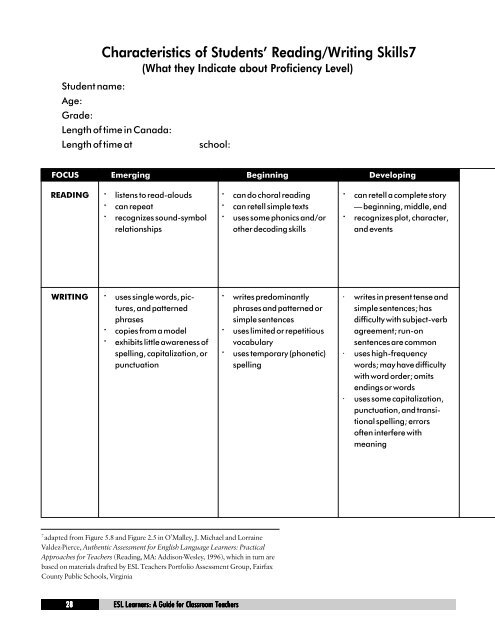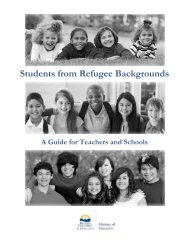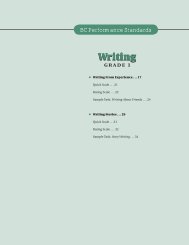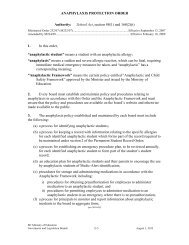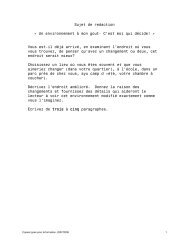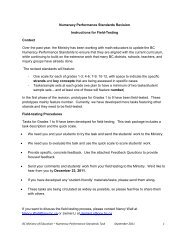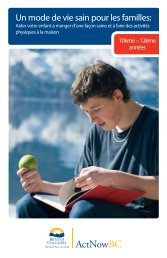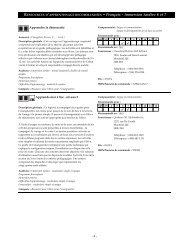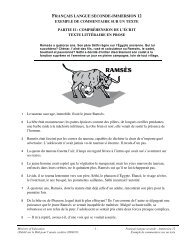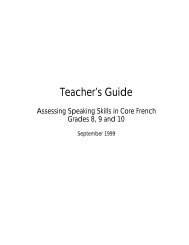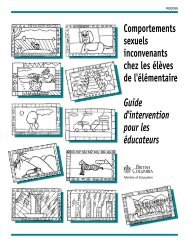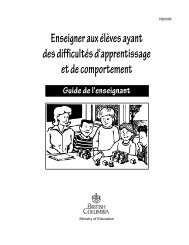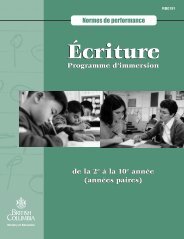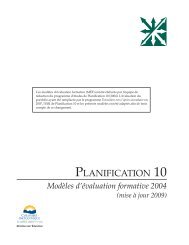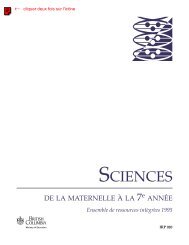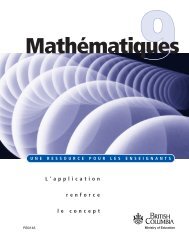A Guide for Classroom Teachers - Education
A Guide for Classroom Teachers - Education
A Guide for Classroom Teachers - Education
Create successful ePaper yourself
Turn your PDF publications into a flip-book with our unique Google optimized e-Paper software.
Student name:<br />
Age:<br />
Grade:<br />
Length of time in Canada:<br />
Length of time at school:<br />
28<br />
28<br />
Characteristics of Students’ Reading/Writing Skills7<br />
(What they Indicate about Proficiency Level)<br />
FOCUS Emerging Beginning Developing<br />
READING<br />
WRITING<br />
• listens to read-alouds<br />
• can repeat<br />
• recognizes sound-symbol<br />
relationships<br />
• uses single words, pictures,<br />
and patterned<br />
phrases<br />
• copies from a model<br />
• exhibits little awareness of<br />
spelling, capitalization, or<br />
punctuation<br />
ESL ESL Learners: Learners: A A <strong>Guide</strong> <strong>Guide</strong> <strong>for</strong> <strong>for</strong> <strong>Classroom</strong> <strong>Classroom</strong> <strong>Teachers</strong><br />
<strong>Teachers</strong><br />
• can do choral reading<br />
• can retell simple texts<br />
• uses some phonics and/or<br />
other decoding skills<br />
• writes predominantly<br />
phrases and patterned or<br />
simple sentences<br />
• uses limited or repetitious<br />
vocabulary<br />
• uses temporary (phonetic)<br />
spelling<br />
7 adapted from Figure 5.8 and Figure 2.5 in O’Malley, J. Michael and Lorraine<br />
Valdez-Pierce, Authentic Assessment <strong>for</strong> English Language Learners: Practical<br />
Approaches <strong>for</strong> <strong>Teachers</strong> (Reading, MA: Addison-Wesley, 1996), which in turn are<br />
based on materials drafted by ESL <strong>Teachers</strong> Portfolio Assessment Group, Fairfax<br />
County Public Schools, Virginia<br />
• can retell a complete story<br />
— beginning, middle, end<br />
• recognizes plot, character,<br />
and events<br />
• writes in present tense and<br />
simple sentences; has<br />
difficulty with subject-verb<br />
agreement; run-on<br />
sentences are common<br />
• uses high-frequency<br />
words; may have difficulty<br />
with word order; omits<br />
endings or words<br />
• uses some capitalization,<br />
punctuation, and transitional<br />
spelling; errors<br />
often interfere with<br />
meaning


